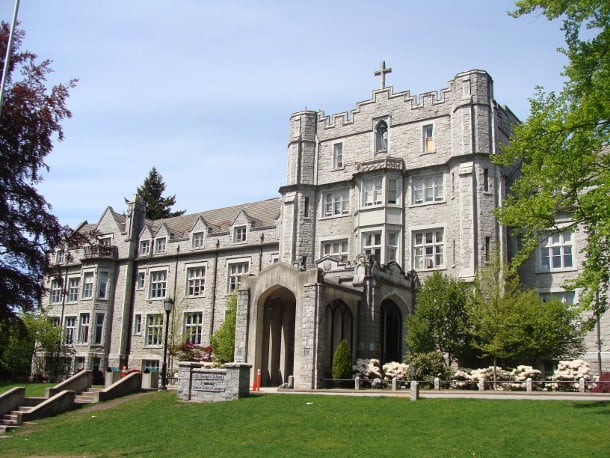Four out of every five British Columbians support axing B.C. government subsidies for so-called “elite” private schools, according to a new poll commissioned by First Call: BC Child and Youth Advocacy Coalition and the Institute for Public Education.
They’re also not fans of the province’s 377 independent schools receiving exemptions from the B.C. Human Rights Code and property taxes. But they’re OK with private school donors getting tax receipts. (Private schools in B.C. are known as “independent.”)
The poll, conducted by Insights West and funded by investment banker Kevin Campbell through his Lochmaddy Foundation, received online responses from 817 British Columbians between May 13 and 20. The margin of error was +/- 3.4 percentage points, 19 times out of 20.
“It’s an issue that I’ve been thinking about for a long time. We all know that the BC Liberals created this private education behemoth since coming to power in 2001, and the enrolment into private education [in B.C.] is nearly double the national average,” said Campbell, adding the combined operational and special purpose grants the provincial government gave to private schools in 2017/18 totalled $413.7 million.
“I thought it was time to evaluate how British Columbians feel about that.”
Public schools also receive special purpose grants and are fully funded by the government for operational and capital expenses. Operational grants alone for public schools in 2017/18 totalled $4.9 billion. There were 84,995 students enrolled in private schools and 563,247 students in public schools that year.
Nearly three-quarters (73 per cent) of poll respondents did not have school-aged children, while close to one-quarter (23 per cent) had kids in the public system, and just three per cent sent their kids to private schools.
Respondents were asked four questions about their opinions on exemptions and subsidies for “elite,” secular and religious private schools, with “elite” defined as those schools that spend more per pupil than the province’s public schools.
Private schools in B.C. fall under one of four groupings: Group 1 schools receive 50 per cent of the per pupil operational funding provided to public schools in the district where the school is located; Group 2 schools, a.k.a. “elite” schools, receive 35 per cent of the per pupil funding. Together Group 1 and 2 schools totalled 321 out of the 377 private schools in the 2017/18 school year.
Group 3 and 4 schools do not receive government funding, but are eligible for property tax exemptions and donors can receive tax receipts. Unlike public schools, private schools in the province do not receive capital funding from the provincial government.
More than three-quarters (78 per cent) of the poll respondents opposed subsidies for Group 2 schools, while two-thirds (66 per cent) supported ending subsidies for secular Group 1 schools. Just over two-thirds (69 per cent) opposed public subsidies for faith-based private schools from either group that include religious teachings in their curriculum.
It was respondents’ answers regarding government funding for “elite” schools that Campbell was “most curious” to see.
“It’s almost the effect of government promoting inequality when you have taxpayer money funding enhanced access to educational resources towards the children of families that can afford it,” he said. “I think it’s a little morally questionable.”
Poll respondents were also asked how they felt about private schools’ exemption from the B.C. Human Rights Code, meaning employees and students could be discriminated against based on their sex, gender, sexual orientation, ability, religious and political beliefs, race and ancestry. Public schools are not exempt from the code.
While 75 per cent of respondents were not aware of the exemption prior to answering the poll, 81 per cent opposed it.
Nearly three-quarters (73 per cent) of respondents opposed the property tax exemption for private schools. But a slight majority of respondents felt donors should receive tax receipts for giving money to private schools, with 43 per cent in favour and 38 per cent opposed.
Government subsidies for private schools were first introduced in B.C. in 1977. While a hot button political issue, maintaining the private school subsidies was supported by all three major political parties during the 2017 provincial election campaign. ![]()
Read more: Rights + Justice, Education, BC Politics
















Tyee Commenting Guidelines
Comments that violate guidelines risk being deleted, and violations may result in a temporary or permanent user ban. Maintain the spirit of good conversation to stay in the discussion.
*Please note The Tyee is not a forum for spreading misinformation about COVID-19, denying its existence or minimizing its risk to public health.
Do:
Do not: